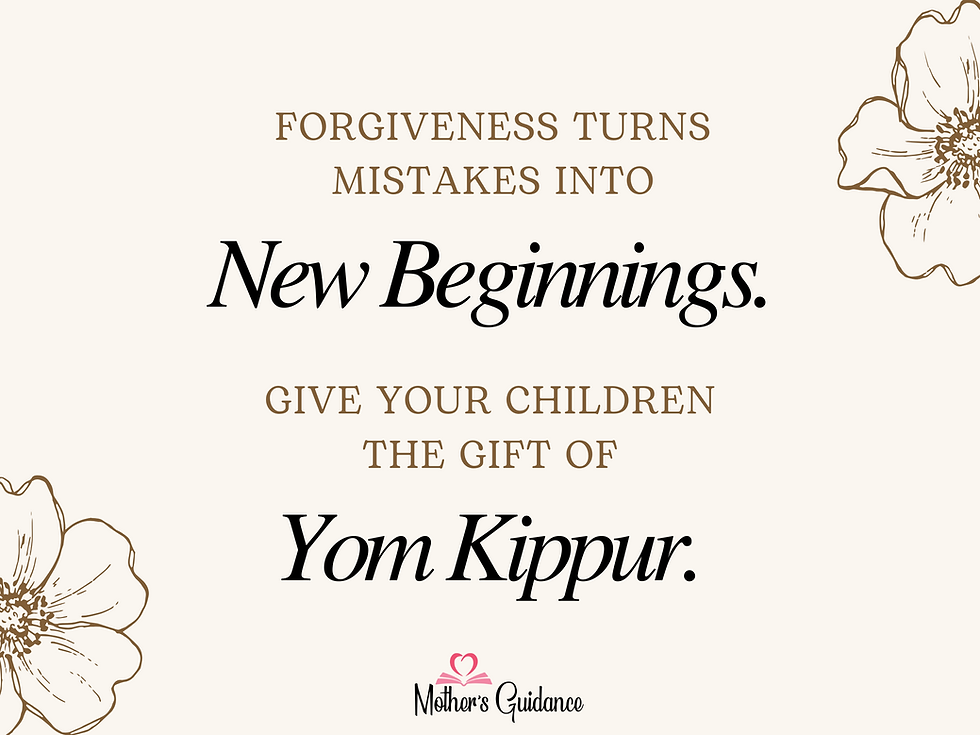My Children, My Brothers?
- Jun 27, 2023
- 2 min read
The Torah stresses respect from children for parents, so a verse in Genesis should raise eyebrows. Let’s take a look at Jacob’s relationship with his sons after they have left Haran and are on their way back to the Land of Israel. (Genesis 31) Rachel and Leah’s father Laban pursued Jacob and eventually Jacob and Laban made a non-aggression pact over a mound of stones. Verse 46 says, “And Jacob said to his brothers, ‘Gather stones,’ and they gathered stones and made a mound.”
Jacob spoke to his brothers? What brothers did he have there? Rashi, a key transmitter of ancient Jewish wisdom, tells us, “heim banav,”—these were his sons who were his brothers in arm, and partners joining with him at times of trouble and hostility.
Isn’t that interesting? Is this similar to modern touchy-feely philosophy of being your children’s best friend? Not at all. Jacob’s children, at times, became his partners, like brothers, to join with him and come to his aid, not to reduce him to come to their level.
I like this verse because so often parents feel unsure about asking their children to contribute and help out at home. They wonder when it’s okay and how much is okay. While it is possible to have unhealthy dynamics when a parent relies on a child’s help too heavily or uses a child as a crutch, this verse is a good reminder to us that it is important for our children to be partners with us. Helping out at home, not only gives a child important opportunities to build life skills and confidence, but it also makes them feel important and valuable because they have contributions to make to their family.
I recently went with my mother and one of my children to watch a documentary about adolescence, technology, and mental health. They reported a study where researchers put mothers and their children alone in a room and gave each child a puzzle to solve that was meant to be too hard for him or her. The researchers were inducing failure in the child while the mother watched. The mothers were told not to interfere or help their child with the puzzle, but inevitably, the mothers stepped in and helped their kids with the challenge.
Here’s the fascinating piece. When the mothers stepped in to help, their own stress levels (heart rate, cortisol level, etc.) went down, but their children’s stress levels went up! By taking away their children’s opportunity to work through a difficult challenge on their own and stepping in to take control of the situation, the mothers felt better but their kids felt worse.
Our children need to have opportunities to tackle big jobs, they need a chance to be our “brothers” and partners, helping us with cooking, yard maintenance, cleaning, and many other areas where we can allow them the opportunity to stretch, grow, and be in partnership with us. Rather than focusing on how we can help them, let us allow them to help us and stretch and grow in the process.




Comments